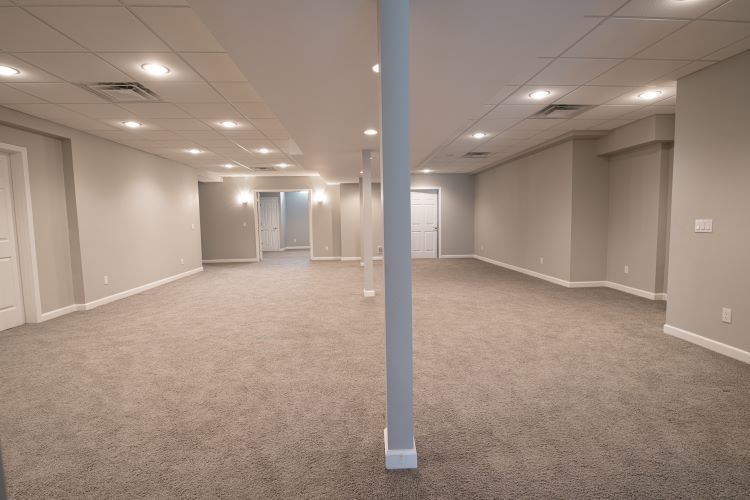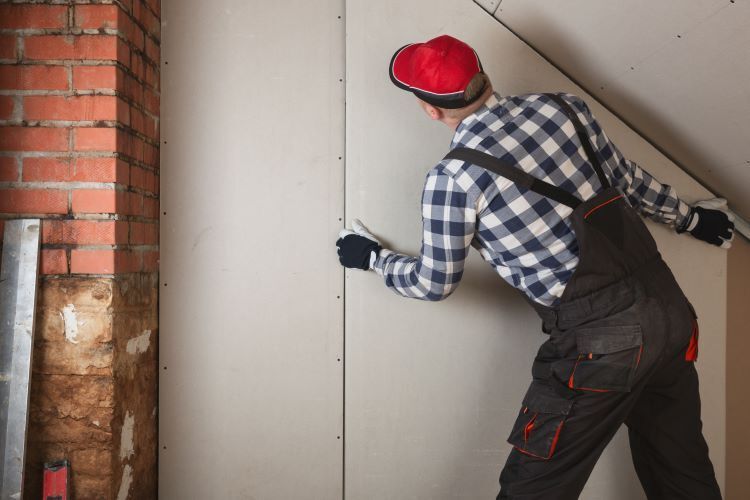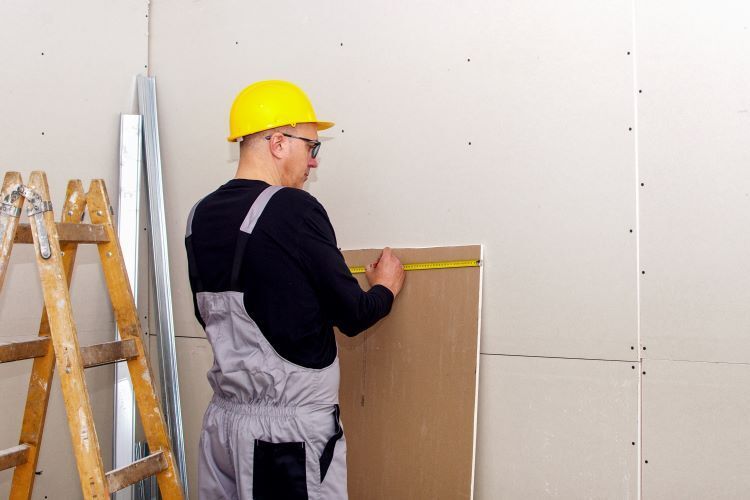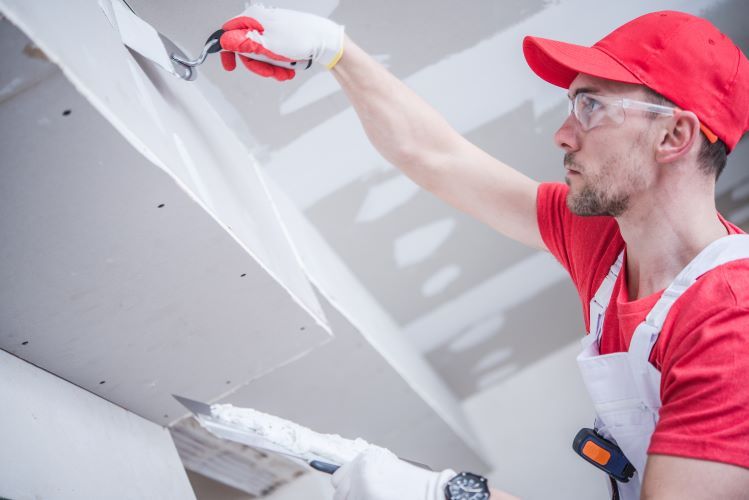Choosing the Right Drywall for Your Basement

When it comes to finishing your basement, selecting the right drywall is a critical decision. Your choice will affect the durability, moisture resistance, and overall appearance of the space. At Barrie Drywallers, we understand that basements come with unique challenges, from potential moisture issues to the need for enhanced soundproofing. In this article, we’ll guide you through the factors to consider when choosing drywall for your basement to ensure you make an informed decision that meets your needs.
1. Understanding the Challenges of Basement Drywall
Basements are different from other areas of your home. They tend to be cooler, more humid, and prone to moisture problems. This environment can affect the materials used in basement finishing, particularly drywall. When choosing drywall for your basement, it’s essential to consider these challenges to avoid future issues like mold, mildew, and water damage.
2. Moisture-Resistant Drywall
One of the primary concerns in a basement is moisture. Whether it’s from the ground, through the walls, or due to plumbing leaks, moisture can lead to serious problems if not properly managed.
Why Choose Moisture-Resistant Drywall:
- Increased Protection Against Mold and Mildew: Moisture-resistant drywall, often referred to as green board or purple board, is specifically designed to resist the growth of mold and mildew. These types of drywall have a water-resistant core and a moisture-resistant paper facing, making them ideal for basements.
- Durability in Humid Conditions: These drywall options are better suited to handle the higher humidity levels often found in basements, reducing the risk of deterioration over time.
Best Uses:
- Moisture-resistant drywall is ideal for areas like laundry rooms, bathrooms, or any other part of your basement that may be exposed to water or high humidity.
3. Soundproofing Drywall
Basements are often used as recreation rooms, home theaters, or additional living spaces, which can generate noise that might disturb the rest of the house. In such cases, soundproofing becomes a key consideration.
Why Choose Soundproofing Drywall:
- Enhanced Noise Reduction: Soundproofing drywall, sometimes known as acoustic drywall, is thicker and denser than regular drywall. It contains special layers that help absorb and block sound, making it an excellent choice for reducing noise transmission between your basement and the upper floors.
- Increased Comfort: By reducing noise, soundproofing drywall can make your basement a more comfortable and enjoyable space for activities like watching movies, playing music, or hosting gatherings.
Best Uses:
- Consider soundproofing drywall if your basement will be used for entertainment purposes, or if you simply want to minimize the noise that travels through the house.
4. Fire-Resistant Drywall
Safety is another critical factor when choosing drywall, especially if your basement will be used as a living space.
Why Choose Fire-Resistant Drywall:
- Increased Fire Protection: Fire-resistant drywall, commonly known as Type X drywall, is thicker and contains glass fibers that help slow down the spread of fire. It’s designed to provide additional fire protection, giving you more time to evacuate in the event of a fire.
- Building Code Compliance: In many cases, local building codes may require fire-resistant drywall in specific areas of your basement, particularly if you’re creating separate rooms or installing a furnace or boiler room.
Best Uses:
- Fire-resistant drywall is recommended for furnace rooms, utility rooms, or any other areas where there is a higher risk of fire.
5. Standard Drywall
While moisture-resistant, soundproofing, and fire-resistant drywall each have their benefits, standard drywall is still a reliable choice for many basement applications.
Why Choose Standard Drywall:
- Cost-Effective: Standard drywall is more affordable than its specialized counterparts, making it a good option if you’re working with a limited budget.
- Versatile: It’s suitable for most areas of your basement that aren’t prone to moisture or where additional soundproofing or fire resistance isn’t necessary.
- Easy to Work With: Standard drywall is easier to cut, shape, and install, which can reduce labor costs and installation time.
Best Uses:
- Standard drywall is best used in dry areas of your basement where moisture, noise, or fire risks are minimal, such as general living spaces or storage areas.
6. Finishing Touches
Once you’ve chosen the right type of drywall for your basement, it’s important to think about the finishing touches that will make the space truly shine. Proper taping, mudding, and sanding are crucial to achieving a smooth, professional finish. Additionally, consider using a quality primer and paint that are designed for basement environments, as these will further protect your walls from moisture and wear.
Conclusion
Choosing the right drywall for your basement is a decision that should not be taken lightly. By considering the specific needs of your space—whether it’s moisture resistance, soundproofing, or fire protection—you can ensure that your finished basement is not only beautiful but also durable and safe.
At Barrie Drywallers, we’re here to help you make the best choice for your basement finishing project. Contact us today for expert advice and professional installation services that will bring your vision to life.
You Might Also Enjoy:



Contact Us!
